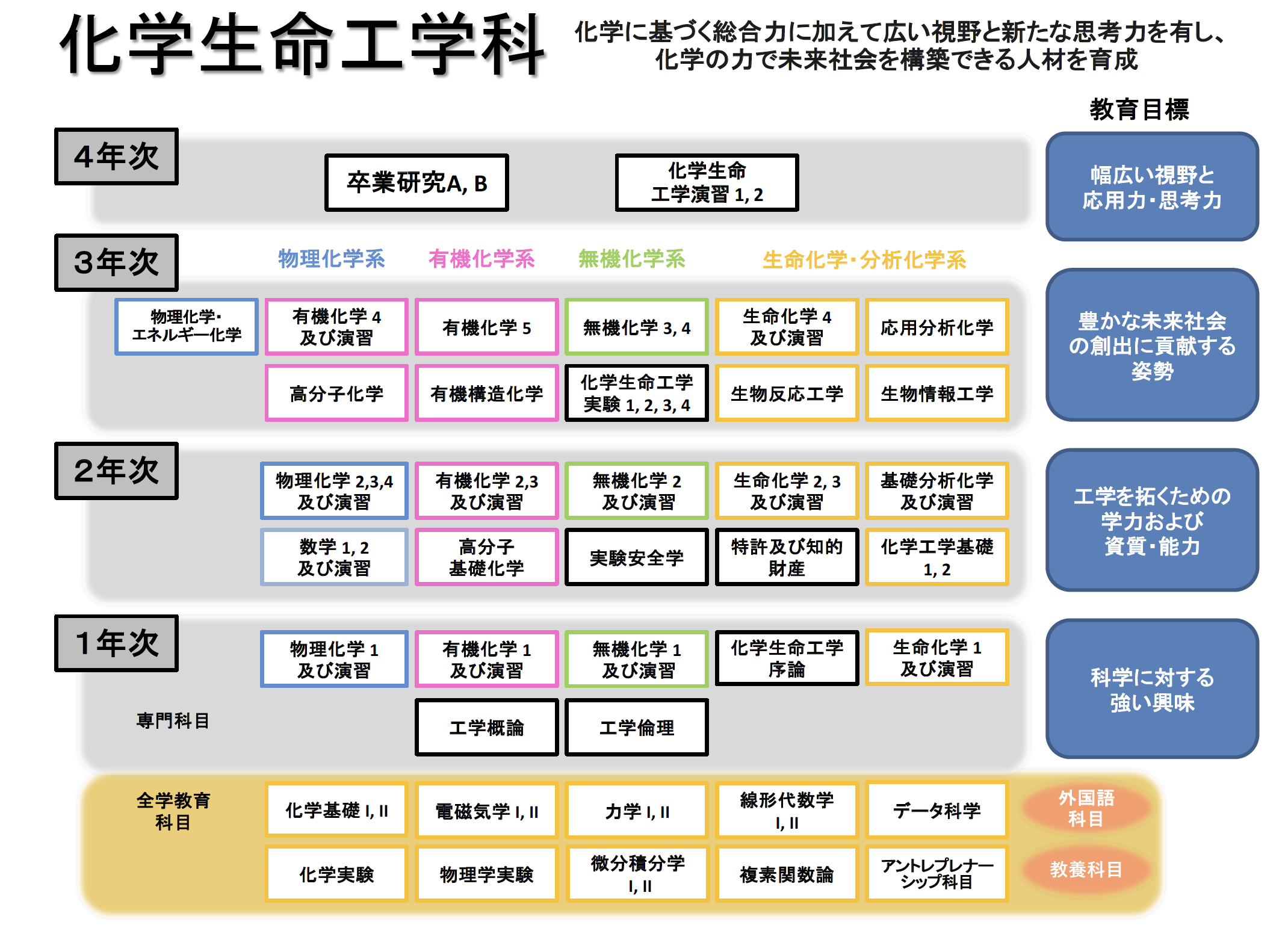
The Chemical Biotechnology department is engaged in teaching basic chemistry and then continuing with applied chemistry with a wide range of materials, phenomena, and functions related to organisms. With developments giving rise to more advanced technology, the topics covered keep expanding due to the development of new reactions and new materials, leading to the creation of advanced materials. This leads to newer medical devices that help elucidate molecular mechanisms and engineering applications of organisms, which has become increasingly important to support modern society. The Chemical Biotechnology department conducts systematic cultivation of chemistry through research and education from basic to applied chemistry.
The curriculum tree of the Chemical Biotechnology department is shown in the figure. In the first and second years, basic chemistry, such as physical chemistry, organic chemistry, inorganic chemistry, analytical chemistry, and biochemistry, are systematically taught, and practical experience is provided by the fulfillment of laboratory experiments. In the third year, subjects such as biotechnology, polymer chemistry, material chemistry, and energy science are taught through lectures and laboratory experiments to cultivate a comprehensive application capacity from an engineering viewpoint. In the fourth year, each student is assigned to a research laboratory to learn the basics of their specialized field through practice and deepen their knowledge by conducting the most advanced research as part of their graduation research. Through the above curricula, students will gain a broad perspective and new thinking skills as well as a comprehensive ability based on chemistry and can build a future society through the power of chemistry.
